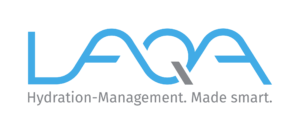Water filter: effective or gimmick?
In Germany, drinking water is one of the foods that is best and most closely monitored. Nevertheless, the majority of consumers buy bottled drinking water in the form of mineral water. Few filter the tap water to obtain better quality. This is usually due to concerns about their own health caused by nitrates in the groundwater, pesticides from conventional agriculture, lead from old pipelines or hormone residues from animal fattening. Consumers are also concerned about the wastewater from industrial companies and private households, which contains a lot of accompanying substances. Many consumers see filtering the water as a suitable measure for the best possible water quality. But what can household water filters really do?
Good quality tap water
Tap water in Germany is generally of a very high quality. This is also checked regularly, as the tap water is subject to the Drinking Water Ordinance. The individual waterworks filter out possible pollutants from the water before it even reaches the consumer. In summer 2016, Stiftung Warentest found no pesticides or hormones in tap water in residue analyses. Although very small amounts of residues from medicines are sometimes found in drinking water, these are so tiny that – according to the consumer advice center of the state of North Rhine-Westphalia – there is no cause for concern about health. However, the supply of safe drinking water is only guaranteed up to your own house connection. Old copper or lead pipes can pollute the water, especially in old buildings. For babies, small children, pregnant women, nursing mothers and senior citizens, this can quickly become a source of health risks.
Focus on filter types
There are different types of filters. There is a difference in the nature and mode of operation of individual filters. Manufacturers usually promise to remove limescale, bacteria and pollutants from the water. Activated carbon filters, ion exchangers and reverse osmosis filters each work individually.
Activated carbon filter
| Utilization: | As a table filter with activated charcoal or filter for installation under the sink |
| Filter option: | Plant treatment products and medication, but lime, nitrate and lead cannot be filtered out |
| Danger: | Very high risk of microorganisms, as activated carbon provides a good breeding ground if the filter is not used for a long time or if there is still water in the container |
| Limitation of use: | difficult to recognize, if the filter is exhausted, substances accumulated there can be released into the water in concentrated form |
| Expert judgment: | In 2014, Stiftung Warentest was unable to classify any of the table filters tested (price range up to a maximum of €185) as recommendable; the quality of fresh tap water was clearly safer |
Ion exchanger
| Utilization: | Ions with the same charge are exchanged, centrally installed ion exchanger system for the complete domestic supply or as a table filter via cartridges |
| Filter option: | positively charged calcium Chemisches Element Ca mit der Ordnungszahl 20, Mineralstoff, der zu den Mengenelementen zählt. Unter den Mineralstoffen ha... and magnesium ions from hard, calcareous water are replaced by positive sodium ions; the ions in nitrate and lead can also be replaced by sodium and chloride |
| Danger: | Very high risk of contamination of the appliances |
| Limitation of use: | Poor verifiability of the need to change the filter and the associated risk of concentrated release of retained unwanted ions into the filtered drinking water |
| Expert judgment: | The Hamburg consumer advice center points out the unreliability of the filter change indicators and the associated risk of ingesting more pollutants at some point; the filter cartridges are ecologically questionable as they cannot be recycled |
Reverse osmosis filter
| Utilization: | in the filter system, the tap water is pressed through a membrane with one-sided permeability using electric pumps |
| Filter option: | Water of extreme purity, filtering out nitrates, heavy metals, phosphates, plant treatment agents and pesticides is possible |
| Danger: | important minerals in tap water, such as calcium and magnesium, can also be filtered out, making the membrane susceptible to contamination |
| Limitation of use: | Filter type is cost-intensive and less suitable for private households, often used in laboratory facilities or space centers |
| Expert judgment: | From a nutritional point of view, valuable minerals are lost from the water, and the ecological cost is also very high, as around three liters of fresh water from the tap only produces around one liter of filtered water |
On closer examination of the different filter systems, the result is sobering and the purchase of a water filter should be carefully considered in advance.
